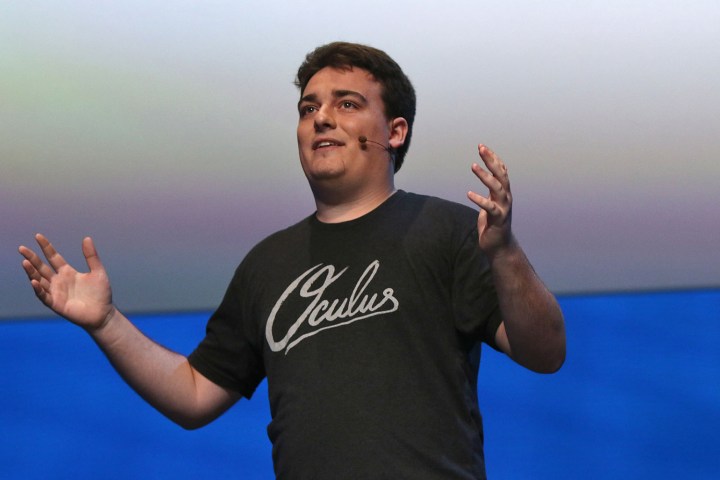
The ReVive project is run by Jules Blok, and sets out to make software that’s exclusive to the Oculus Rift headset fully playable on the HTC Vive.
“As some of you suspected the sudden extreme jump in the pledge amount is indeed by Palmer Luckey,” Blok wrote in a post published to the ReVive Patreon page. “I’d like to thank him for his pledge and everything he has done for the VR community as a whole.”
Luckey is something of a controversial figure within that portion of the VR community that is on the political left, having earned plenty of goodwill from his peers for his efforts to nurture the technology, ahead of a backlash to his financial support of pro-Trump groups during the 2016 presidential election. Following his exit from Facebook, he has founded a new startup that will develop surveillance technology aimed at the defense industry.
It remains to be seen whether there will be any fallout from his decision to support Blok’s Patreon campaign. While the public presentation of his departure from Facebook painted the split as being amicable, it seems likely that the company would take issue with him funding the project.
Oculus implements a walled-garden approach in order to better compete with the HTC Vive, which is its biggest rival in terms of VR hardware. Luckey has spoken out against this strategy previously, but obviously contributing thousands of dollars to the development of a workaround makes a much more dramatic statement.
It’s easy to see why someone who played a major role in getting VR off the ground would want to see software made available to the widest possible audience, without hardware restrictions. However, given the recent history between Luckey and Facebook, this kind of public donation doesn’t seem like a particularly shrewd move.


